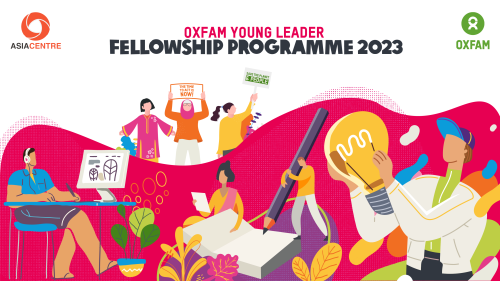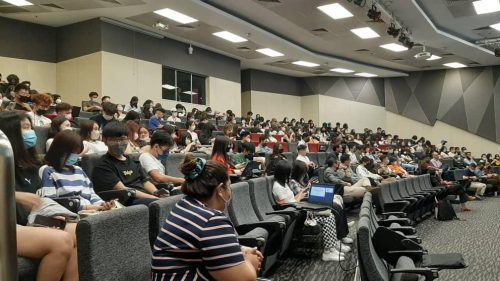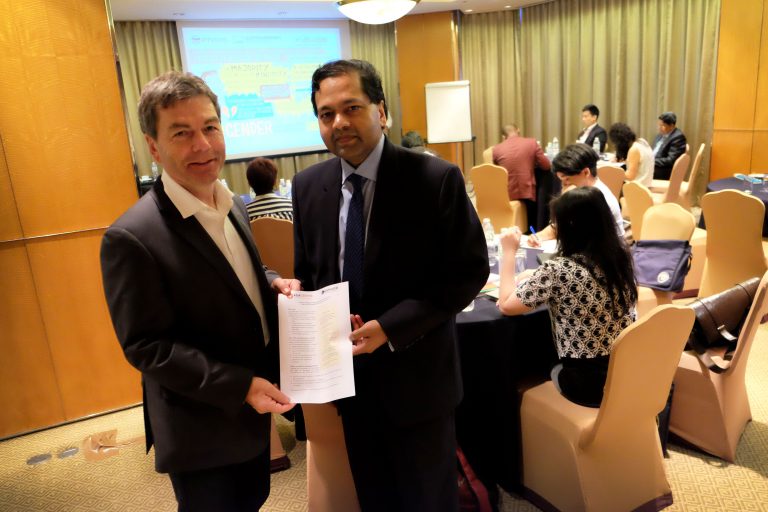Strengthening youth engagement in politics, governance, and civil society requires a concrete action plan spanning short-, mid-, and long-term goals. This was the central message of the “Asia Global Democracy Coalition Regional Forum 2025: Youths, Democracy & Electoral Legitimacy in Asia”, co-hosted by Asia Centre and the Global Democracy Coalition.

Held on 4 April 2025 in Bangkok, Thailand, the hybrid forum brought together 33 on-site participants and 62 online attendees, aged 18 to 65, from across Asia representing students, academics, CSOs, diplomatic representatives and research institutes.
Sanjay Gathia, Programme Manager at Asia Centre, opened the event by reflecting on key insights from the Asia Centre-GDC forum held on 28 November 2024. He emphasised the importance of regional collaboration to strengthen democracy in the Asia-Pacific, highlighting the need for youth involvement and support systems to combat systemic corruption, address economic inequalities, and foster youth participation in democratic processes.
Elisenda Balleste Buxo, Project Coordinator of the Global Democracy Coalition at International IDEA, followed with a recorded speech. She acknowledged the challenges of shrinking civic space and the disillusionment of younger generations. She stressed the importance of placing youth at the forefront of the Global Democracy Coalition, urging the event to serve as a catalyst for collective action.

The first panel, “Youth, Democracy & Elections in Asia: Issues & Challenges”, explored barriers to youth engagement in politics across South Korea, India, Indonesia and Thailand. Chaehyun Kim of the Korea Democracy Foundation highlighted concerns stemming from South Korea’s December 2024 Martial Law declaration and subsequent protests seeing a high presence of women and younger generations. Her speech stressed how the South Korean political environment has been experiencing a long-time absence of youth participation due to generational hierarchy, party dominance, and lack of transparency as obstacles for young policymakers. Shelly Mahajan from the Association for Democratic Reforms (India) discussed the disillusionment of Indian youth with politics and advocated for reforms, including youth quotas. Chikita Edrini Marpaung of the Legal Aid Organization for the Press (Indonesia) examined the role of youth movements on social media, referencing the #GagalkanOmnibusLaw hashtag as an example of digital activism. Yosathorn Niamsaing of the Thai Lawyers for Human Rights addressed challenges faced by pro-democracy movements in Thailand, including the overuse of the Thai Criminal Code and concerns about the draft Law on Associations and Foundations.
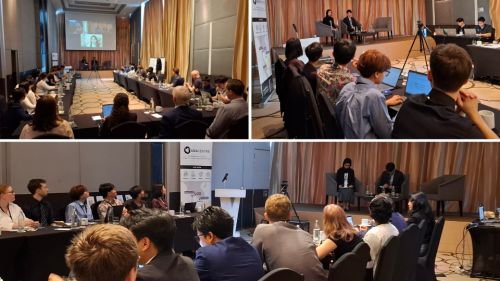
The second panel, “Breaking Barriers for Youth Participation in Politics”, focused on strategies to enhance youth participation, drawing on experiences from Malaysia, Myanmar, Taiwan, Thailand, and the Czech Republic. Jernell Tan of Suara Rakyat Malaysia (SUARAM) highlighted the history of student activism and its role in bridging social divides and driving social change, which the young generation in the current age can learn from and adapt. Liliane of Politics for Women, Myanmar, shared examples from the 2021 Spring Revolution, showcasing the lesson learnt from the changing role of women and youth in Myanmar society, including being more active in ongoing resistance movements and applying an intersectional lens to address socio-political issues. Dr. Alan H. Yang of the Taiwan-Asia Exchange Foundation (TAEF) emphasised the learning from Taiwan’s youth activism, which was able to move beyond campus, leading to reforms and the election of young legislators. He also advocated for more comprehensive cross-regional cooperation between youth activists in Taiwan and their counterparts in Southeast Asia. Chompunut Chalieobun of the Westminster Foundation advocated for political parties to adopt affirmative actions to foster empowerment and inclusive policy development for young women MPs. Nadiia Ivanova of People in Need called for safe mechanisms to support, cross-regionally, youth engagement and safeguard activists from repression.

In the afternoon, on-site participants formed three groups – those discussing the topic of Youth & Politics, Youth & Governance and Youth & Civil Society – to discuss challenges and propose solutions for enhancing youth engagement. Each group developed short-, mid-, and long-term action plans.
- The Youth & Politics group identified key issues such as access to education and resources, representation barriers, and political apathy. Their plans included leveraging social media and education reforms in the short term, forming youth groups within political parties in the medium term, and advocating for proportional representation in the long term.
- The Youth & Governance group highlighted restrictive legal structures, the need for leadership opportunities, and financial constraints. Their plans ranged from training programs for activists in the short term to policy reforms and international alliances in the long term.
- The Youth & Civil Society group focused on financial constraints, skill development and safety guarantees. Their plans included fundraising activities for self-sustainability in the short term, fostering youth-inclusive community environments in the medium term, and developing self-reliant social enterprises in the long term.

During the plenary and future planning sessions, participants shared their action plans, aiming to create a roadmap for sustained youth engagement and democratic participation. The event concluded with a call for collaboration, resource-sharing and consistent efforts to overcome challenges and improve youth participation.
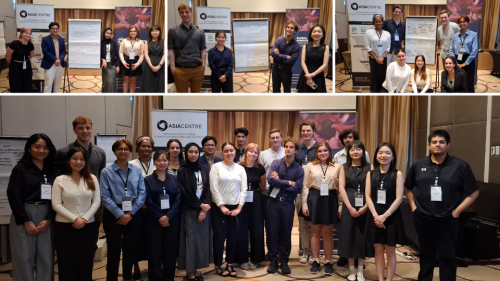
View the video recording of the panel discussions here.
Asia Centre is a civil society research institute in Special Consultative Status with the United Nations Economic and Social Council. It serves as a knowledge partner and undertakes evidence-based research as well as provides capacity-building training for end beneficiaries. If you would like to collaborate with the Centre, please send an expression of interest to contact@asiacentre.org.
Follow Asia Centre’s social media channels for more information.

